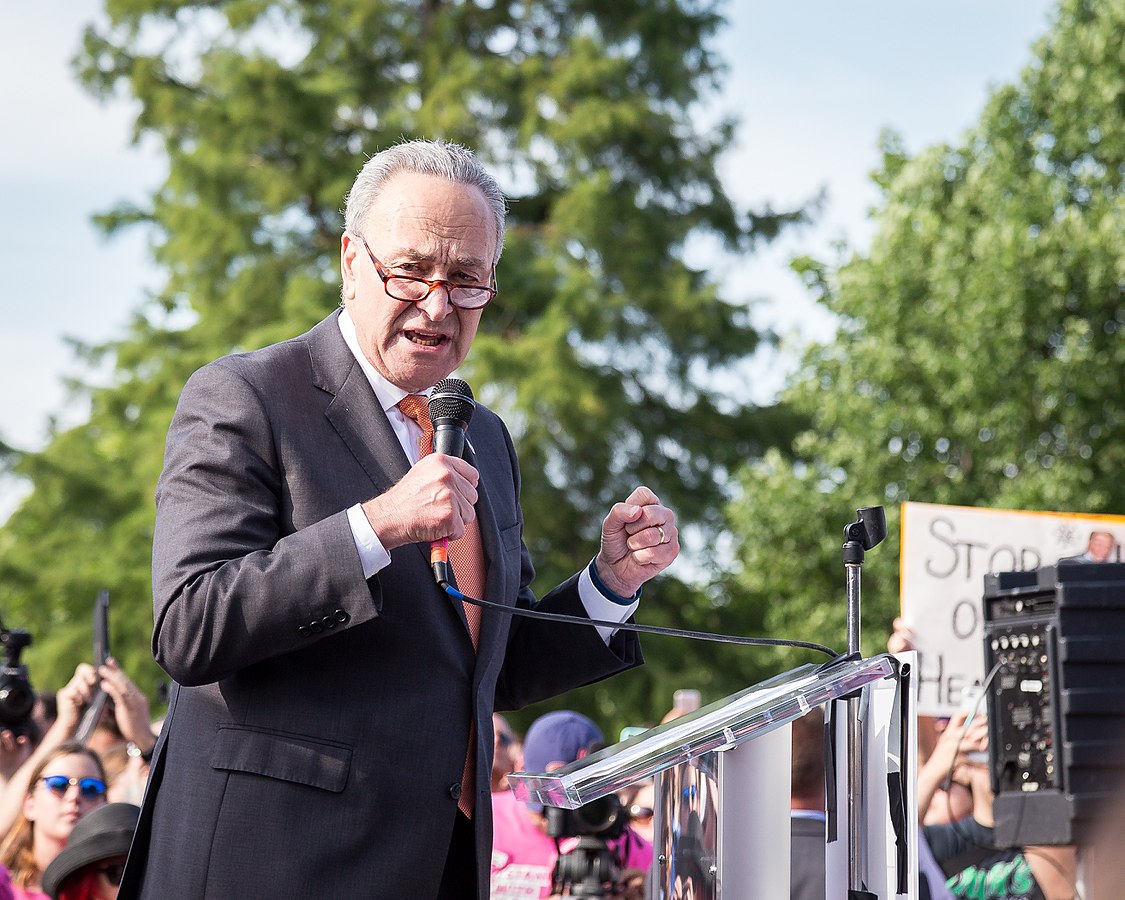After forty days of political gridlock and economic strain, the Senate finally voted to advance a measure that would reopen the government, marking a rare fracture within the Democratic ranks.
Eight members of the Senate Democratic Caucus broke from Minority Leader Chuck Schumer to support a House-passed continuing resolution, a move seen as a significant victory for President Donald Trump and Senate Republicans.
The measure passed 60 to 40 late Sunday night, clearing a procedural hurdle that had stalled fourteen times in the past.
While the vote represented a major breakthrough to end the historic shutdown, lawmakers warned that final passage could still take several days.
🚨 BREAKING: After almost 40 DAYS, Senate Democrats have voted to end their shutdown, which was the longest in U.S. history
EIGHT Democrats voted with Republicans to reach the necessary 60 vote threshold to end the filibuster. This vote has failed 14 times in the past 40 days.… pic.twitter.com/WLeYE6B1bf
— Nick Sortor (@nicksortor) November 10, 2025
Some senators are expected to slow the process in protest of the agreement’s terms, even as millions of federal workers await a return to work.
The deal will next move to the House of Representatives, which has been in recess since mid-September.
Once lawmakers return, they’ll have to decide whether to approve the Senate’s compromise or prolong the shutdown further.
Among the Democrats who flipped their votes were Sens. Tim Kaine of Virginia, Jeanne Shaheen and Maggie Hassan of New Hampshire, Jacky Rosen and Catherine Cortez Masto of Nevada, and John Fetterman of Pennsylvania.
Independent Sen. Angus King of Maine, who caucuses with Democrats, also backed the legislation.
In a notable show of bipartisanship, these senators joined Republicans in supporting the funding deal.
The only Republican to oppose the bill was Sen. Rand Paul of Kentucky, who cited concerns about spending provisions and requested an amendment related to hemp cultivation in his state.
Senate Majority Leader John Thune, who helped craft the bipartisan agreement alongside centrist Democrats, said the measure was essential to restore stability.
“We have senators, both Democrats and Republicans, who are eager to address this crisis in a bipartisan way,” Thune said, adding that President Trump was personally involved in discussions to reopen the government.
Thune confirmed he plans to hold a vote on health care subsidies by early December as part of a broader effort to resolve lingering policy disputes.
Lock Them Up! Russiagate is reigniting…
Obama, Clinton, Comey, and Brennan are all on the hook!
CLICK HERE to demand Russiagate conspirators got to prison!
The compromise extends current federal funding levels through January 2026 and secures funding for key programs, including a federal food aid initiative.
It also reverses layoffs that took place during the shutdown, allowing thousands of federal employees to return to their posts.
Additionally, the plan advances three full-year appropriations bills, giving Congress more breathing room before the next budget fight.
Reports indicate that King, Hassan, and Shaheen played central roles in negotiating the agreement with Republicans.
King told reporters that the protracted shutdown left the group little choice but to act.
Today I again voted to re-open the government, resume vital services for Maine people, put people back to work, feed the hungry and secure an opportunity to avoid a harmful hike in health care costs. pic.twitter.com/wcwUAUwXAo
— Senator Angus King (@SenAngusKing) November 10, 2025
“The question was, as the shutdown progresses, is a solution on the ACA becoming more likely? It appears not,” he said, noting that the group wanted to guarantee a vote on extending Affordable Care Act subsidies.
While he suggested Democrats were unlikely to get everything they wanted, he said they secured at least a “vote by a guaranteed date” on the issue.
Shaheen, who is retiring from the Senate, defended her decision to back the compromise despite criticism from within her party.
“This was the only deal on the table,” she said. “Waiting another week or another month wouldn’t deliver a better outcome.”
She said the bipartisan process was necessary to move legislation that could realistically pass both chambers of Congress.
The deal’s health care provisions have become a flashpoint for Democratic leadership, which wanted to tie the reopening of the government to a year-long extension of Affordable Care Act subsidies.
Schumer criticized the agreement, saying it “fails to address the healthcare crisis.”
Sen. Chuck Schumer (D-NY) created the longest government shutdown in US history and lost. He got nothing for it.
40 days that he could’ve spent trying to help Americans but he instead hurt them.
Schumer’s political career is now over.
It won’t recover.pic.twitter.com/ICcuWtDQL9
— Paul A. Szypula 🇺🇸 (@Bubblebathgirl) November 10, 2025
He accused Republicans of rejecting any meaningful reform when they opposed Democrats’ counterproposal.
Despite that pushback, Thune defended the bipartisan compromise. Speaking on the Senate floor, he said both parties recognize that health care costs are rising and that voters expect Congress to find common ground.
“We also have a president who is willing to sit down and get to work on this issue,” he said.
Even with the Senate’s breakthrough, procedural hurdles remain. Thune acknowledged that any single senator could delay progress by withholding consent, which could push a final vote back several days.
“We’ll hopefully get an opportunity to set up the next votes,” he said. “Of course, that’s going to take some cooperation.”
Meanwhile, House Minority Leader Hakeem Jeffries criticized the deal, accusing Senate Republicans of prioritizing political optics over policy.
“House Democrats have consistently maintained that bipartisan legislation that funds the government must also decisively address the Republican healthcare crisis,” he said in a statement.
Jeffries vowed to fight the bill in the House, warning that it failed to protect Affordable Care Act tax credits.
In his remarks, Jeffries framed the ongoing fight as part of a larger political battle ahead of the 2026 midterm elections.
Appearing on NBC’s “Meet the Press,” he predicted that Democrats would regain control of the House and potentially the Senate.
“Democrats are definitely going to take back control of the House of Representatives,” he said, adding that his party would focus on lowering living costs and reforming health care.
Jeffries cited recent Democratic victories in states like New York, New Jersey, Virginia, and California as evidence of voter momentum.
“The American people have had enough,” he said, arguing that Republicans have favored the wealthy over working-class Americans.










Schumer U seeded this alone its on
Shutdown ideas:
Indie Group to probe shutdown cause, & cures
More accountability
NOT for politics
Uniform guidelines for shutdown estd?
Refund with interest.
CUT more depts, agencies
Outsource more